NDFU union farmer
APRIL 2023 • ndfu.org

NDFU union farmer
APRIL 2023 • ndfu.org
NDFU sends more than 40 delegates to National Farmers Union convention in San Francisco


After growing up on the family farm just south of Rugby, I attended college at the University of Mary and began working during the summers for an insurance company taking pictures of insured properties. Through this opportunity, I was able to get an internship with Farmers Union Insurance. After this internship, I began teaching for a few years before I was approached about an opportunity to work with the Farmers Union agent in Rugby. I am happy to say I have been a Farmers Union agent in Rugby for nine years now. Since living in Rugby, I have married the love of my life, Alli, and we welcomed our daughter in February.

Being an insurance agent has been rewarding and a learning experience. I have never had the same workday twice. I love that it gives me the ability to get out in the community and get to know those I may have not otherwise gotten the chance to.

It is always easy to go to work for a company when you share similar values such as investing back into the communities and supporting youth, whether that is back into the schools or through sports.



When not in the office, you can usually find me out on the boat fishing or in the field
chasing pheasants with my two chocolate labs Lilly & Stella. I also enjoy being part of many organizations including being an FFA alumni member, Rugby Eagles member, lifetime member of Lake Region Anglers, and I also sit on the board of directors for National Professional Anglers Association (NPAA).


My husband, Greg, and I were married in 1980 and started our farming and ranching career. We worked with a local bank to borrow money to buy a line of used farm equipment and the inputs needed to operate our farm. Interest rates were already climbing and after a handful of years, we were paying 18% interest, which was one of our top three expenses every year! Not having a lot of equity built up, made it obvious we were not going to be able to continue farming unless we reduced our interest expense.
Our bank recommended we work with the Farmers Home Administration (FmHA) for our loan needs. In a way, it felt like we had somehow failed because we were at the “lender of last resort.” But in hindsight, it was likely the best thing that could have happened. Under the FmHA Direct Loan Program, we worked with a loan officer who cared about our operation, we lowered our interest expense, learned to keep good records, and were able to buy land. Eventually, we went back to working with our regular bank under the Guaranteed Loan Program and have since “graduated.”
ND Director for Farm Service Agency
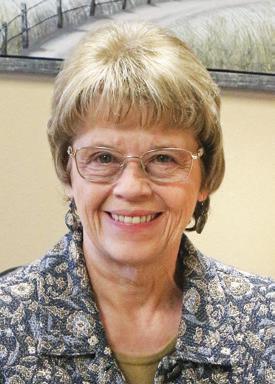
Today, the USDA Farm Service Agency (FSA) loan program is considered the “lender of first opportunity.”
With the Direct Loan Program, FSA assists producers with farm ownership, down payments and operating loans. The maximum amounts, rates and terms of those direct loans depend on the type of purchase an applicant wants to make. Applicants are eligible if they are unable to obtain sufficient credit elsewhere and have an acceptable credit history. Direct Farm Ownership joint financing loans allow FSA to lend up to 50% of the cost of the property being purchased if a commercial lender, state program or the seller of the farm provides the
balance of loan funds.
With a Down Payment Farm Ownership Loan, loan funds may be used only to partially finance the purchase of a family farm. Applicants must be able to contribute 5% of the purchase price of the farm and the agency will finance 45% up to a maximum amount. We also have a Youth Direct Loan Program for participants aged 10-20 years old. The youth loan maximum is $5,000 and is used in connection with 4-H, FFA, Tribal Youth Group or other agricultural youth organizations.
Our FSA Guaranteed Loan Program is very popular. The applicant for a guaranteed loan continues to work with their commercial lender and the lender’s loan is “guaranteed” by FSA to reduce the lender’s risk. The Guaranteed Loan Program maximums are higher than direct loans and the interest rates are negotiated between the applicant and the commercial lender. Our Farm Storage Facility Loans are available to help finance the hauling and storage of farm commodities.
FSA is focused on outreach to beginning farmers and ranchers – defined primarily as someone who has not operated a farm for more than 10 years and who substantially

participates in the operation of the farm. In 1997, we had 214 direct loans to beginning farmers and ranchers. By 2022, that program had grown significantly to 1,262 borrowers. Lindsey Abentroth, our outreach coordinator, recently took over the role of North Dakota Beginning Farmer & Rancher Coordinator for FSA, Natural Resources Conservation Service (NRCS), Rural Development (RD) and the Risk Management Agency (RMA). Lindsey’s role is to recruit, retain and support a new generation of farmer/ranchers. Our loan programs can help in that endeavor.
If you are considering applying for a FSA loan, we have a new Loan Assistance Tool available at https://lat.fpac.usda.gov/. The tool will help guide you through the process and determine what type of loan you may qualify for. We also have loan officers available to assist you – just call your FSA county office to find the loan officer nearest you.
If Greg and I wouldn’t have reached out to our local FSA office many years ago, we wouldn’t be farming and ranching today. We highly encourage you to do the same to see what opportunities may be available for you.
Article courtesy NDSU Ag Communications

(Completed Grades 3-6)
JAMES RIVER
June 12-15
June 27-30
July 5-8
July 17-20
July 24-27
HEART BUTTE
June 19-22
June 26-29
July 5-8
July 18-21
July 25-28
(Completed Grades 7-12)
June 13-17 Heart Butte ( Grades 7-12)
June 20-24 Jamestown ( Grades 7-9)
July 10-14 Jamestown ( Grades 7-12)
July 11-15 Heart Butte ( Grades 7-9)
July 31-Aug 4 Jamestown ( Grades 10-12)
Aug 1-5 Heart Butte ( Grades 10-12)
7th & 8th Grade Lock-In : April 29-30 (Jamestown)
All-States Leadership Camp : June 25-30 (Montana)
Third Year Award Tour : July 17-20 (Twin Cities)
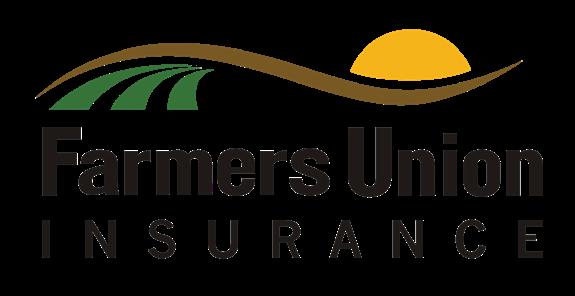
Campers earn a limited edition T-shirt and Cenex gift card for referring friends to camp as well as award trips for youth program participation. Restrictions apply, visit ndfu.org for details.
Approximately 25-30 individuals are hired and trained each year by NDFU as camp counselors, kitchen staff and facility maintenance workers. Applicants must complete an application, interview and pass the background check process.


Register by May 15 and receive a discount on your registration fee!


The U.S. Department of Agriculture (USDA) released a proposed rule with new regulatory requirements to better align the voluntary “Product of USA” label claim with consumer understanding of what the claim means.
The proposed rule allows the voluntary “Product of USA” or “Made in the USA” label claim to be used on meat, poultry and egg products only when they are derived from animals born, raised, slaughtered and processed in the United States. The increased clarity and transparency provided by this proposed change would prevent consumer confusion and help ensure that consumers understand where their food comes from.
USDA’s proposed rulemaking is supported by petitions, thousands of comments from stakeholders and data. In July 2021, USDA initiated a comprehensive review to understand what the “Product of USA” claim means to consumers and inform planned rulemaking to define the requirements for making such a claim. As part of its review, USDA commissioned a nationwide consumer survey. The survey revealed that the current “Product of USA” labeling claim is misleading to a majority of consumers surveyed, with a significant portion believing the claim means that the product was made from animals born, raised, slaughtered and processed in the United States.
USDA’s comprehensive review shows there is a clear need to revise the current “Product of USA” label claim so that it more accurately conveys U.S. origin information.
USDA encourages stakeholders, both domestic and international, to comment on the proposed rule. The proposed rule will be open for public comment for 60 days after publishing in the Federal Register. Public comments can be submitted at www.regulations.gov. Comments must be received by May 12.

 — USDA
— USDA
For many years, your organization has been pushing for mandatory country-of-origin labeling. We strongly believe consumers have the right to know where the products they buy are produced. We also support truth in labeling to disallow claims that mislead the consumer with promises that cannot be sourced, verified or scientifically proven.
Our success on the country-of-origin labeling front has been limited, due to rules from the World Trade Organization (WTO) and challenges from other countries at the WTO. I do not agree all the time with WTO determinations, but we are required to live with their decisions.

Your organization has polled consumers on country-of-origin labeling. Consumers have a desire and a willingness to pay a small percentage more for country-of-origin labeling information. Consumers trust U.S. family farms and ranches to provide them with safe, quality products. Labeling creates opportunities for family farmers and ranchers to differentiate their products in the marketplace.
Secretary of Agriculture Tom Vilsack announced at the recent National Farmers Union convention that the U.S. Department of Agriculture (USDA) is releasing a proposed rule for “Product of USA” labels. The rule would require animals be born, raised, slaughtered and processed in the United States in order for meat, poultry and egg products to bear the “Product of USA” or “Made in the USA” label.
Under the proposed rule, the “Product of USA” label would continue to be voluntary. It would also remain eligible for generic label approval, meaning it would not need to be pre-approved by USDA’s Food Safety and Inspection Service before it could be used on regulated products, but would require supporting documentation to be on file for agency inspection and personnel to verify. The rulemaking also proposes to allow other voluntary U.S. origin claims that we see on meat, poultry and egg products sold in the marketplace. These claims would need to include a description on the package of all
preparation and processing steps that occurred in the United States upon which the claim is made.

“American consumers expect that when they buy a meat product at the grocery store, the claims they see on the label mean what they say,” said Vilsack. “These proposed changes are intended to provide consumers with accurate information to make informed purchasing decisions. Our action affirms USDA’s commitment to ensuring accurate and truthful product labeling.”
The increased clarity and transparency provided by this proposed change will help prevent consumer confusion and ensure that consumers understand where their food comes from. This is a great first step. It still falls short of our goals, but we will continue to push for truth in labeling laws.
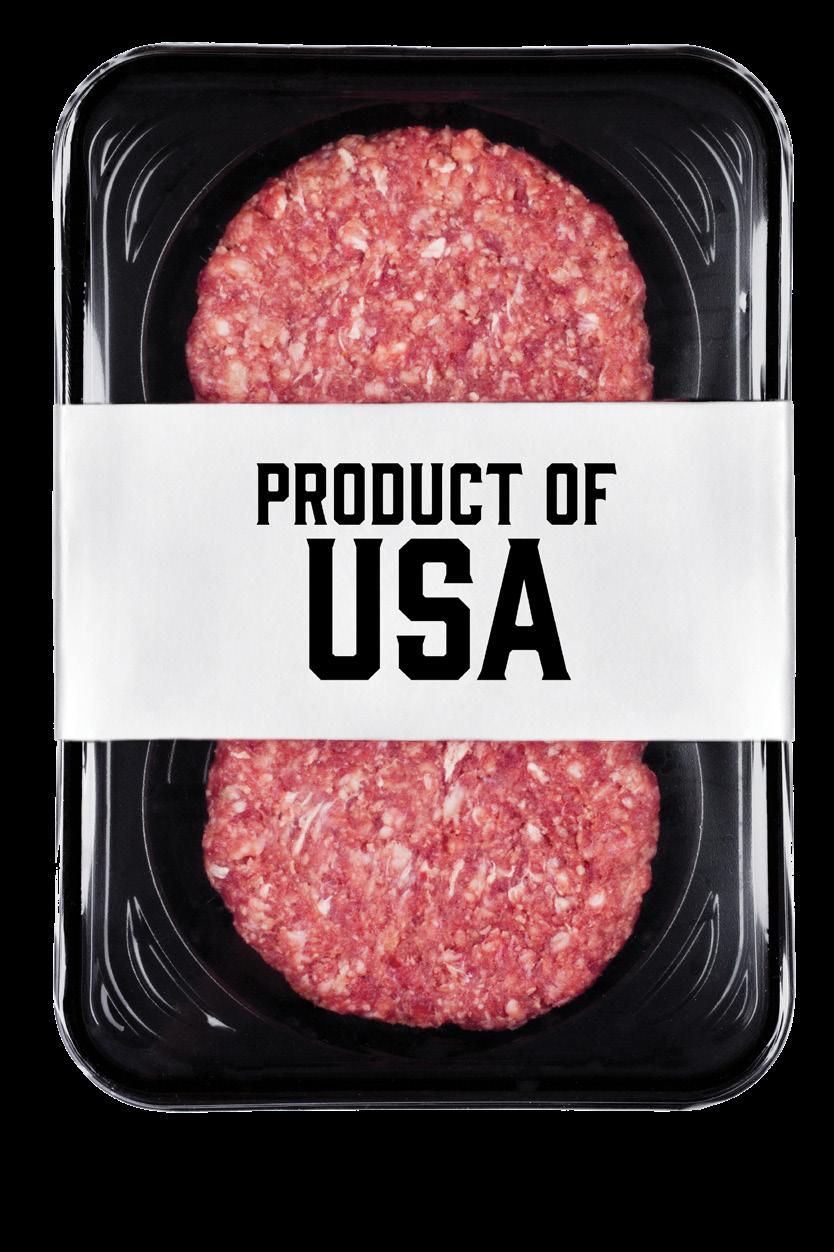

North Dakota farmers, especially those in the Prairie Pothole Region, navigate wetland regulation and compliance hurdles regularly as wetlands are subject to several protections. Wetland mitigation is one option for maintaining compliance with some wetland protections by replacing wetlands impacted by activities such as field drainage improvements.
In 2022, North Dakota Farmers Union was one of six agricultural groups to join together and form North Dakota Agricultural Mitigation (NDAM), a nonprofit organization with the mission of developing wetland mitigation banking alternatives for farmers facing Natural Resource Conservation Service (NRCS) wetland compliance challenges.
Through a grant funding partnership with NRCS, NDAM has established Ag Wetland Trade, a program where landowners volunteering to establish wetland mitigation bank sites can sell wetland acres to individuals impacting wetlands at other locations. There are incentives
for both sellers and buyers, with 80% of the sales revenue going to landowners willing to host and develop a wetland bank site and the buyers maintaining compliance with Swampbuster wetland provisions for U.S. Department of Agriculture programs and federal crop insurance.
By relocating wetlands impacted by farming practices to designating areas managed for wetland and wildlife benefits, Ag Wetland Trade benefits both conservation and production agriculture. Land established as a wetland bank typically requires a hydrological modification to restore or create a wetland. Land with poorly functioning drainage ditches or expiring Conservation Reserve Program contracts are often great candidates for wetland banks.
If you have land with the potential for wetland restoration or creation or are interested in learning more about this program, visit ndagwetlandtrade.com for more information or call Matt Retka at 701-893-2322.
— NDAM

Did you know that farmers and ranchers receive only 14.3* cents of every food dollar that consumers spend? According to the USDA, off farm costs including marketing, processing, wholesaling, distribution and retailing account for more than 80 cents of every food dollar spent in the United States.


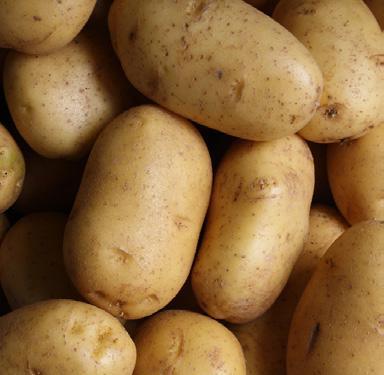
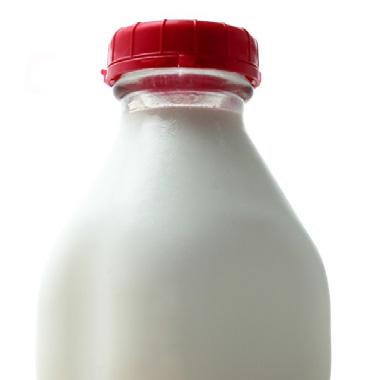







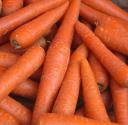



As spring approaches, many ranchers are preparing a clean, dry and warm place for newborn animals. Frigid temperatures in the Upper Midwest make it a challenge for producers to keep newborn livestock warm and protected from harsh, winter elements.
One option for keeping newborn livestock warm is to provide supplemental heat by installing heat lamps. However, severe risks can accompany the use of heat lamps inside a barn.
“As livestock producers, we want to do everything in our power to establish the best outcome for our newborn stock,” said Travis Hoffman, North Dakota State University and University of Minnesota Extension sheep specialist. “Sometimes we need to help our newborn livestock by providing supplemental heat to prevent hypothermia.”
The lower critical temperature for newborn lambs and kids is 50 degrees Fahrenheit. Providing additional heat in the form of heat lamps for newborn lambs, kids and calves inside a “hot box” can aid in newborn survivability.
Unfortunately, the use of heat lamps also adds increased fire risk to barns, especially when heat lamps are placed over deep, bedded straw.
“The risk of barn fires increases anytime you add a heating system to your barn, especially the use of heat lamps,” said Angie Johnson, NDSU Extension farm and ranch safety coordinator. “Ranchers must use extreme caution and preventative measures when using heat sources for your barn, especially heat lamps.”
If ranchers decide that using heat lamps is their best option to provide a supplemental heat source for newborn livestock, Johnson and Hoffman provide the following tips to help reduce the risk of fire:
• Secure all heat lamps with a non-flammable hanger. The best option is to use a chain and a locking chain connector to prevent the heat lamp from falling into the straw. Do not use
twine or rope. Heat lamps should be secured as if they are permanent.
• Purchase high quality, heavy-duty heat lamps and thick glass bulbs. Utilize a heat lamp that is designed to withstand a fall and lay in a pen without starting a fire. Utilize heat lamp bulbs that won’t break if they fall into the pen. Farm and ranch stores that specialize in lambing and kidding equipment have heat lamp and bulb options.
• Clean off dust, cobwebs and dead insects before using the heat lamp.
• Inspect heat lamps for exposed wiring, loose bulb sockets or broken bulbs stuck in the heat lamp socket before using.
• Directly plug heat lamps into an outlet, not an extension cord. Outlet receptacles should be both ground fault (GFCI) and arc fault (AFCI). An arc fault is an unintended arc created by a current flowing through an unplanned path that could create a fire, such as a heat lamp sparking when knocked into the pen. A ground fault trips when there is a sudden change in the amount of current going out versus coming back. Together, these two help prevent fire from a spark or electrocution if an animal chews on the wire. Additionally, ensure that you do not overload the circuit.
• Place a fire extinguisher near each entrance of the barn. Have a 10-pound, ABC-rated (multipurpose) fire extinguisher ready to use in case of a fire. Check extinguishers periodically to ensure that they have maintained their charge by reading the indicator dial.
• Consider investing in a barn temperature monitoring system or fire monitoring system.
“Using heat lamps in your barn means that ranchers must be diligent in checking the heat lamps every day, multiple times a day,” said Johnson. “If one animal bumps the heat lamp or chews on the electrical cord, causing exposed wires, a barn fire could easily occur in a matter of minutes. However, with proper safety considerations, heat lamps can be a viable option for protecting newborn livestock.”

NFU President Rob Larew testified before the U.S. House Committee on Agriculture for its first hearing of the 118th Congress. The hearing, titled “Uncertainty, Inflation, Regulations: Challenges Facing American Agriculture,” included a panel of agricultural leaders to provide insight into the biggest challenges facing farms across the country, as Congress gears up for the Farm Bill.
In his testimony, Larew detailed how key issues facing farmers and ranchers stem from consolidation and concentration in the food system. Reduction in competition in grocery retail, input markets and processing have created major bottlenecks in America’s food supply chain. For example, just four companies control 85% of the market for beef, 67% for pork and 53% for poultry. These large corporations have been raking in record profits while consumers are paying record prices at the grocery store and the farmer’s share of the food dollar remains historically low.
Larew emphasized the need for strong enforcement of the Packers and Stockyards Act (P&S Act) and voiced support for recent USDA P&S Act rulemakings to increase transparency in poultry and livestock markets and protect producers from unfair, deceptive and retaliatory practices. Larew voiced support for the establishment of an independent office within USDA to investigate and prosecute abuses by corporate monopolies.
Larew also stressed the need for regulations to be science-based, size- and risk-appropriate and to provide for ample producer and community feedback. Recent regulations have created uncertainty for farmers and ranchers. Prominent examples include ongoing challenges concerning the definition of Waters of the United States (WOTUS) under the Clean Water Act and issues related to the regulation of crop protection products. Larew also advocated for a strong Renewable Fuel Standard (RFS) with future regulatory actions geared toward the growth and success of homegrown, clean fuels.
When it comes to uncertainty, one of the greatest challenges facing American agriculture is climate change. Shifting precipitation
patterns, devastating droughts and extreme weather events pose a serious threat to the operations and livelihoods of farmers. Larew’s testimony emphasized the need for the expansion of climate-smart agriculture projects and the importance of voluntary, incentivebased conservation programs, which are critical for farmers to be part of the solution in the fight against climate change.
Larew fielded questions from committee members, several of whom were focused on Right to Repair. Larew stressed the need for legislation that ensures farmers and ranchers have the right to repair their own equipment.

In late February, the Food and Agriculture Climate Alliance (FACA) released policy recommendations for the 2023 Farm Bill. FACA is a coalition representing food, agriculture, forestry, environmental, and other organizations with an interest in advancing bipartisan climate solutions.
What started as an informal dialogue between eight organizations, FACA has now grown to over 80 member organizations since it formally launched in 2020. NFU is a co-chair and founding member of FACA.
For the 2023 Farm Bill, FACA’s priorities cover six major categories:
• Conservation, risk management and credit.
• Energy
• Food Waste
• Forestry
• Livestock and dairy
• Research, Extension and Innovation.
FACA’s farm bill recommendations call for the development of a comprehensive strategy to reduce emissions throughout food, agricultural and forestry supply chains. These recommendations are grounded in the shared support by all FACA members for federal climate policies that are voluntary, incentiveand science-based, promote resilience and help rural communities adapt to climate change, and ensure equitable opportunities for all farmers, ranchers and forest owners.


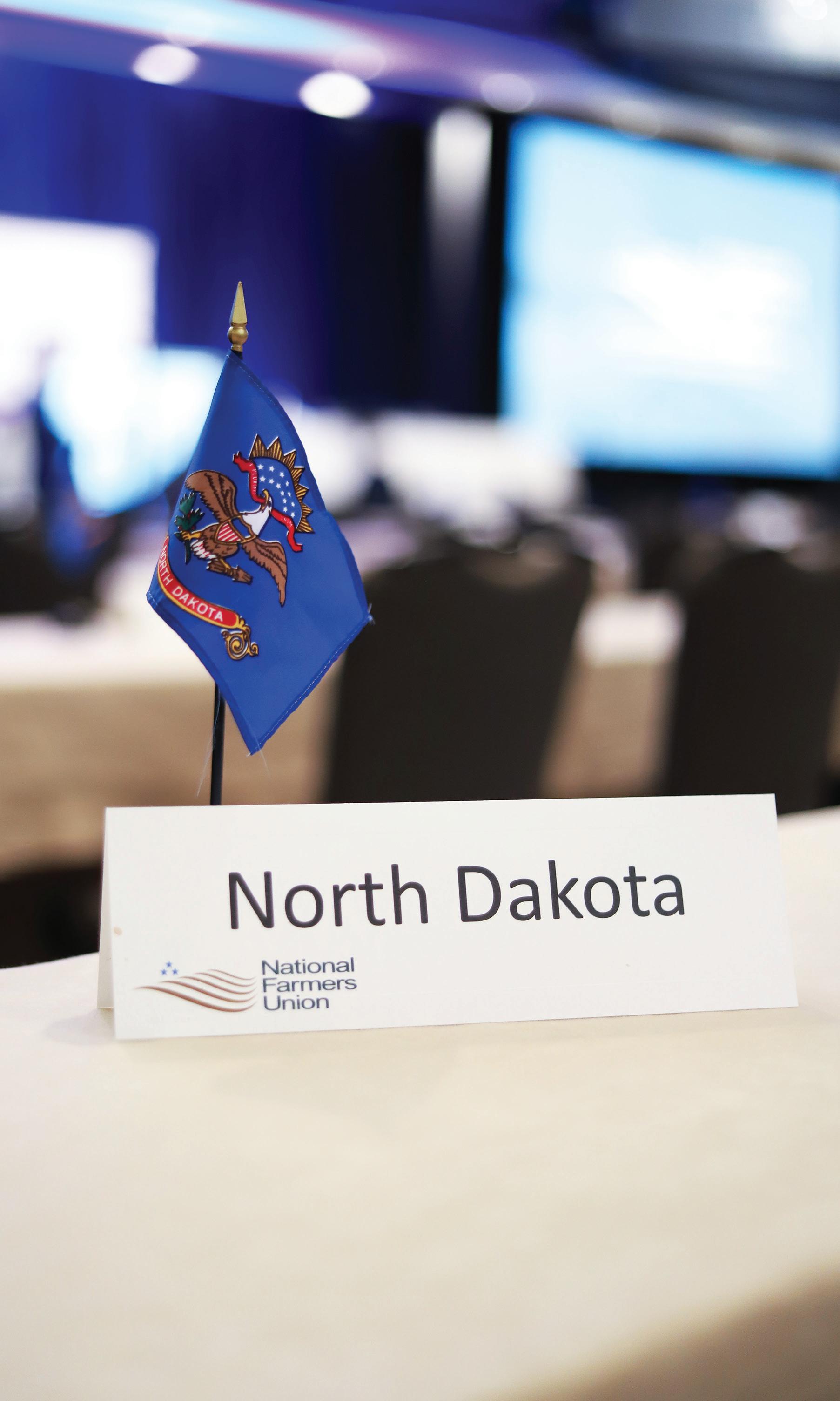

When Tim Fischer was elected as a delegate to the National Farmers Union convention, he saw the opportunity to not only debate policy, but also to learn about other types of agriculture around the country.
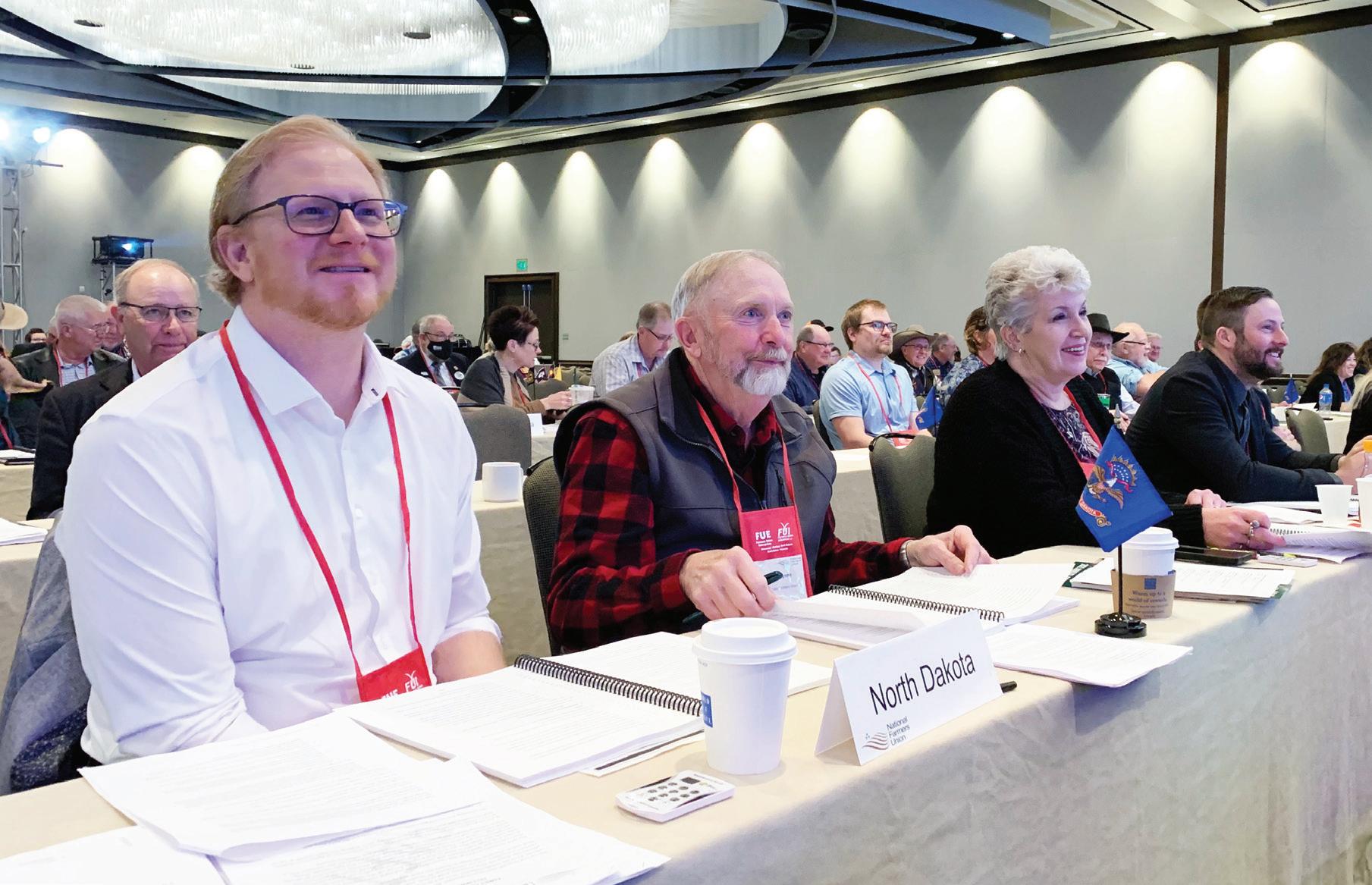
The 24-year-old from Bowman — who helps on his family’s ranch — said he was able to visit with farmers from Hawaii who gave him a different perspective.
“I met up with them and learned different ways of farming,” he said. “It’s really different compared to North Dakota. They grow different (crops) than what we grow, and I learned about their climate. It was awesome.”
North Dakota Farmers Union took over 40 delegates to the convention March 5-7 in San Francisco to debate policy with other producers around the country. The three-day meeting also featured a strong lineup of speakers, including Secretary of Agriculture Tom Vilsack, former Speaker of the House Nancy Pelosi and California Secretary of Food and Agriculture Karen Ross.
Fischer, a second-time delegate, said he took away valuable information.

“It’s a great experience and everyone’s got something to bring to the table,” he said. “You learn a lot while you’re down here.”
NFU President Rob Larew said the convention helps lay out the organization’s priorities for the coming year.
“Farmers Union members are united and energized. With our grassroots policy set and the 2023 Farm Bill proceeding in earnest, NFU is going to hit the ground running,” said NFU President Rob Larew. “Our agenda this year focused on the ability of our members to make change and we do that best together. The last few days are a testament to the strength of National Farmers Union.”
Key among those priorities are the special orders, which are specific policy asks from the membership that need to be addressed in 2023. The special orders for this year are Fairness for Farmers (NFU’s campaign on monopolization and right-to-repair issues in agriculture), the 2023 Farm Bill and Dairy Policy Reform. The special orders and more from the convention can be read by going to NFU.org.

SAN FRANCISCO – At the opening banquet of National Farmers Union’s 121st convention, NFU President Rob Larew presented Sarah Vogel of North Dakota and Doug Peterson of Minnesota with Meritorious Service awards, the highest honor presented by Farmers Union.
Vogel was presented with the award for Meritorious Service to Farmers Union and to World Agriculture. Hailed as “a giant killer in ag law” by The Nation, Sarah Vogel is an advocate, author and one of the foremost agriculture lawyers in the United States.
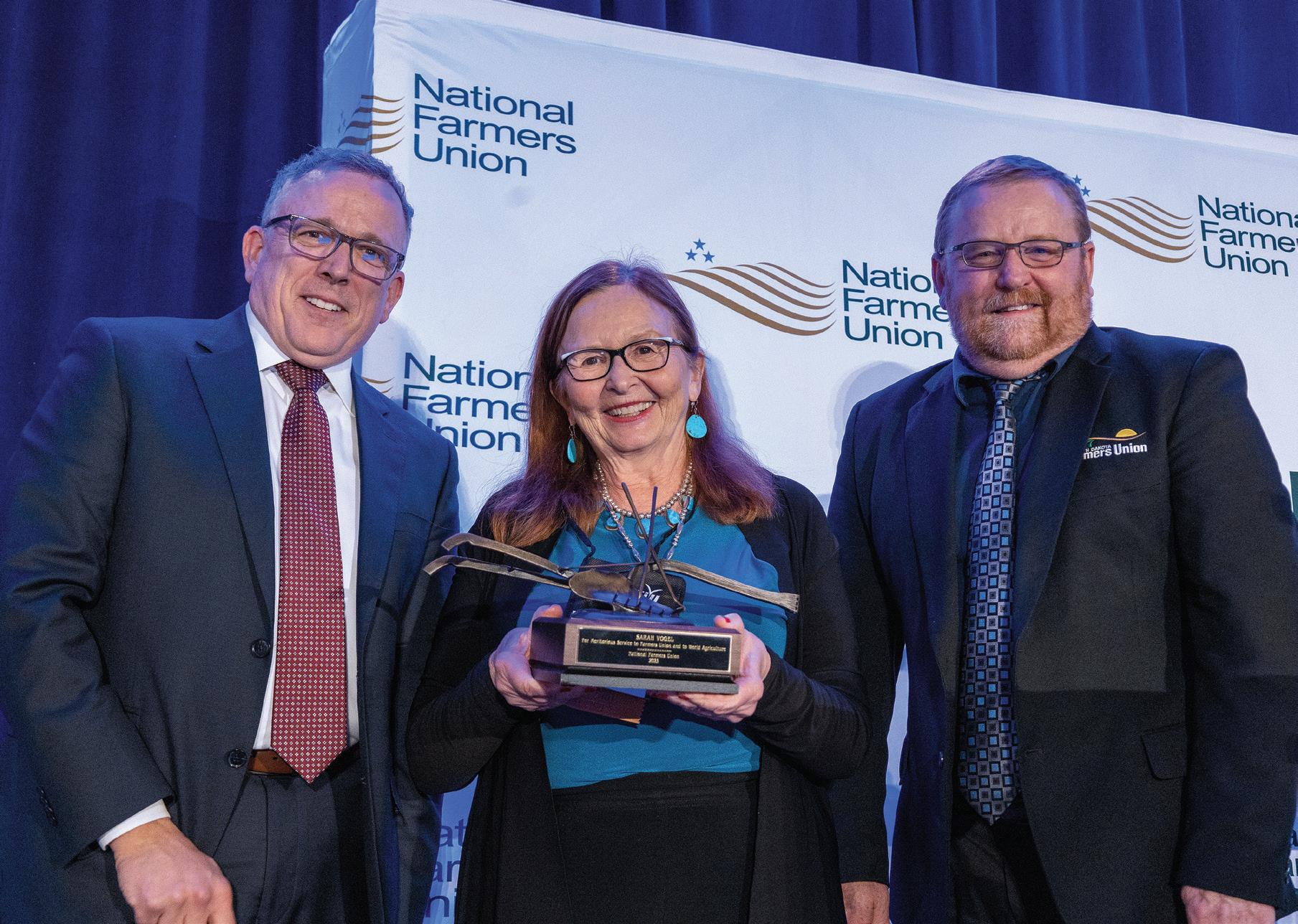
“Sarah’s record of fighting for family farmers across the country and world speaks for itself,” Larew said. “I’m glad to call Sarah a friend, and someone who embodies so many of the core values of Farmers Union. Congratulations to her on this well-deserved award.”
Vogel’s debut memoir, The Farmer’s Lawyer, shares her historic fight as a young single mother during the 1980s farm crisis when she took on her first case and sued the federal government on behalf of thousands of farmers nationwide who were in danger of losing their farms and livelihood.
The first woman elected state Commissioner
of Agriculture in U.S. history, Vogel was born in North Dakota to a family with roots in the Nonpartisan League (NPL) and has fought for decades to implement the progressive politics of the NPL.
Doug Peterson was presented with the award for Meritorious Service to Farmers Union and to American Agriculture. Peterson served as president of Minnesota Farmers Union for 14 years and retired from that role in 2016.
“Congratulations to Doug on this honor and for his years of service to Farmers Union,” said NFU President Rob Larew. “Doug has been a champion for farmers and rural communities for his entire career, whether it was his work in the Minnesota Legislature, or as the president of Minnesota Farmers Union.”
Peterson was elected to the Minnesota House of Representatives in 1990 and was reelected five times. In the House, he founded and served as chair of the Right to Be Rural Coalition. As president of Minnesota Farmers Union, he created Minnesota Cooks to promote and support a local and sustainable food system.
National Farmers Union honored 14 Farmers Union county organizations from North Dakota for their membership achievements the past year. The counties honored included Barnes, Burleigh, Emmons, Logan, McHenry, Morton, Oliver, Sheridan, Sioux, Stutsman, Steele, Ward, Wells and Williams. Pictured here with the awards, from left to right, in front is NDFU President Mark Watne, Shelly Ziesch, Bob Finken, April Marquart, Tim Fischer, Dalton Wiest, Miles Tomac, Ben Vig and Megan Vig. In back is NFU Vice President Jeff Kippley, Tyler Stafslien, Mike Huebner, Carmen Rath-Wald, Wes Niederman, Bill Kershaw, Justin Sherlock and NFU President Rob Larew.
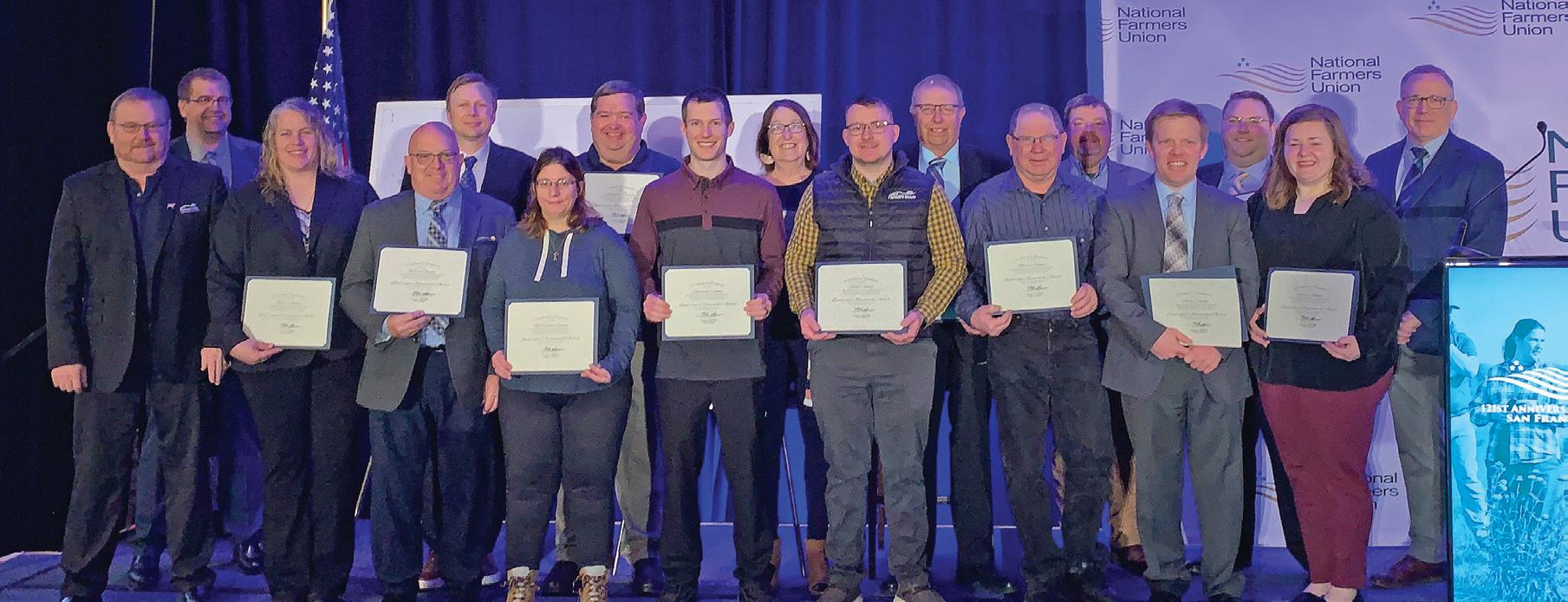
Oliver County Farmers Union President Dave Berger, middle, poses with his award with NFU Vice President Jeff Kippley, left, and NFU President Rob Larew. Berger was honored as North Dakota’s recipient of the Bruce Miller Award, which recognizes those with a true passion for family farming and ranching, while supporting Farmers Union.
NDFU President Mark Watne stands with NFU President Rob Larew after North Dakota was honored for achieving the highest growth of all the Farmers Union states in 2023.


Philip Neubauer of Bottineau County, middle, was NDFU’s representative on NFU’s Policy and Action Committee and presided over a portion of the policy book at the national convention. NFU’s Dave Velde, left and Mike Stranz, right, look on.
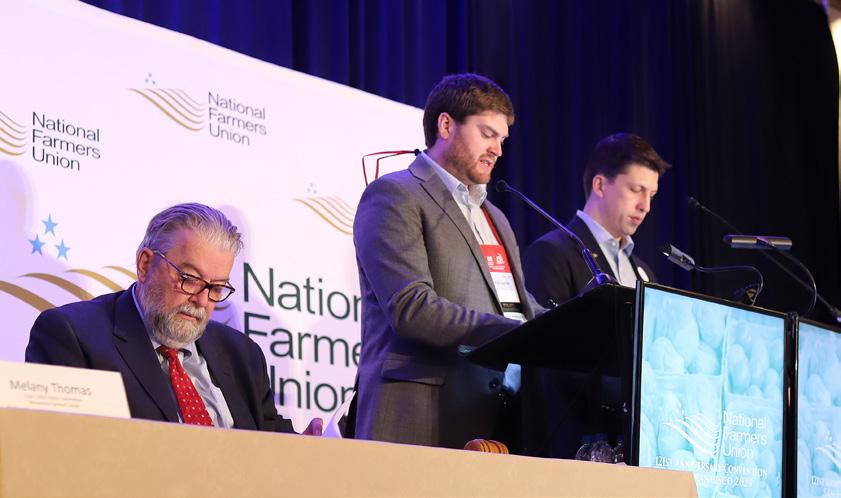

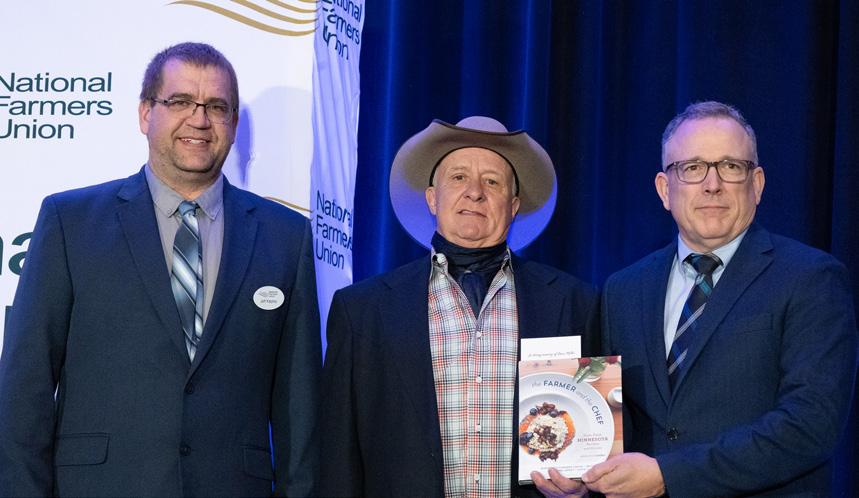


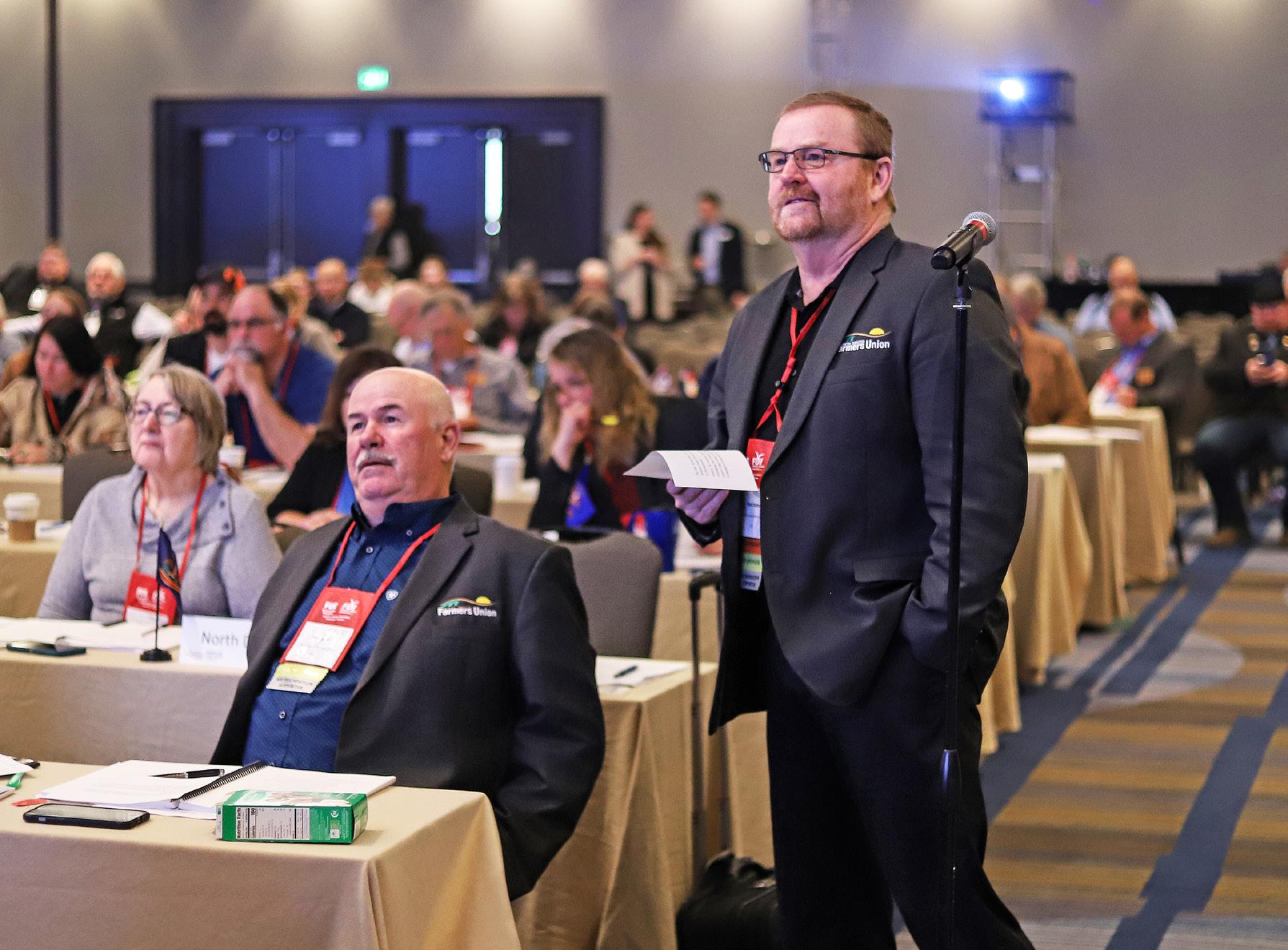
Luke Runyon of Greeley, Colo., was awarded the 2023 Milt Hakel Award for Excellence in Agricultural Journalism at the NFU convention in San Francisco.



Runyon is a reporter covering the Colorado River Basin for public radio station KUNC. His investigations show how water issues can both unite and divide communities throughout the Western United States.
Runyon produces feature stories for KUNC and a network of public media stations in Colorado, Utah, Wyoming, New Mexico, Kansas, Arizona, California and Nevada. Before covering water at KUNC, Runyon covered the ag and food beat for five years as the station’s Harvest Public Media reporters.

“As the climate crisis continues, strong and accurate reporting on issues like water access will be paramount to family farmers,” said NFU President Rob Larew. “Luke’s reporting has helped amplify the unified message of Farmers Union members and brought the story of western water issues to the nation. Telling this story will become even more important as farmers and ranchers across the country deal with the impacts of climate change.”
The Milt Hakel Award for Excellence in Agricultural Journalism is presented to reporters or news outlets that demonstrate exceptional coverage of agricultural issues. The award was named in honor of Milton D. Hakel, a highly respected Farmers Union communicator.
As the 2023 grazing season approaches, North Dakota State University Extension specialists provide an outlook for this year’s forage production.
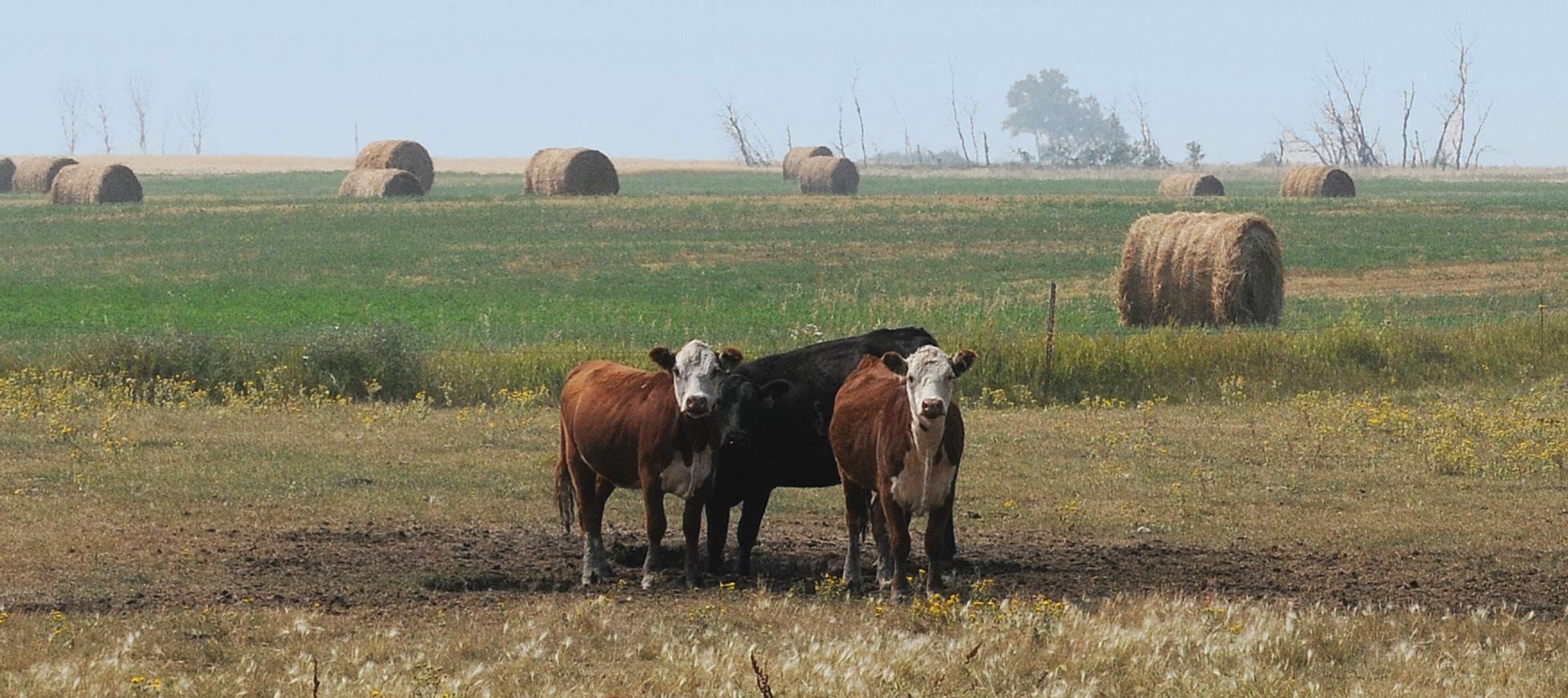
“Despite residual impacts of the 2021 drought, we had good forage production in 2022 due to high rainfall in the fall of 2021 and timely spring rainfall,” said Miranda Meehan, NDSU Extension livestock environmental stewardship specialist. “However, as we moved into summer and fall, precipitation was below normal across the state, causing drought conditions to return.”
As of March 1, 70% of the state is experiencing some level of drought.
The two factors that will influence forage production in 2023 are April through June precipitation and grazing management in 2022.
Fall plant tiller development has a direct impact on plant growth during the subsequent year for all cool-season grasses, which are dominant in our grassland. Cool-season grass tillers, such as western wheatgrass, Kentucky bluegrass, smooth brome grass, green needlegrass and crested wheatgrass, that develop from late August through early October are the first plants to “green up” in the spring. If these tillers are eaten or die due to drought, then spring growth must occur from new tillers developed in April and May.
“Unfortunately, the fall drought conditions likely impacted tiller development,” said
Kevin Sedivec, NDSU Extension rangeland management specialist. “Heavy grazing during the fall that resulted in the removal of the growing point (between the bottom two leaves) from tillers will cause additional stress and tiller mortality. In the event of high fall tiller mortality, grasses will need to develop a new tiller in the spring, delaying growth two to four weeks.”
Tillers that develop in the spring come from buds that broke dormancy in the spring, usually when soil temperatures stay about 40 degrees Fahrenheit for three or more days, whereas the tillers established in the fall will grow as soon as temperatures reach 32 degrees for five consecutive days.
Heavy grazing use in the fall not only delays growth but causes reductions in overall plant growth and forage production. Data collected by NDSU Extension found that severe grazing use, greater than 80% removal of available forage, reduces growth of coolseason grasses and forage production. Forage production was reduced by as much as 57% on sites evaluated as having severe grazing use the previous fall.
In addition to management, April through June precipitation drives forage production in North Dakota. Due to the dominance of cool-season grasses, rains during this period are responsible for 80% to 90% of forage production in the state.
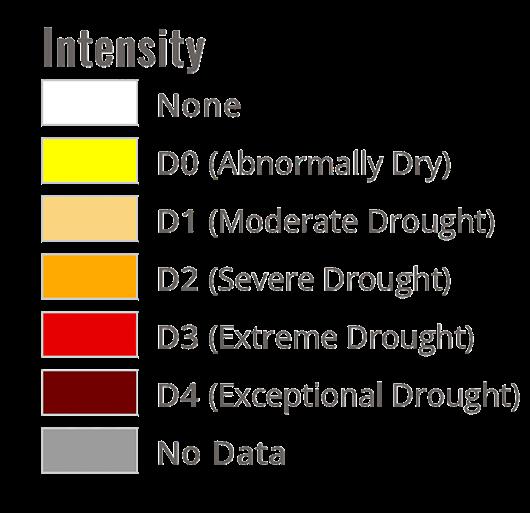
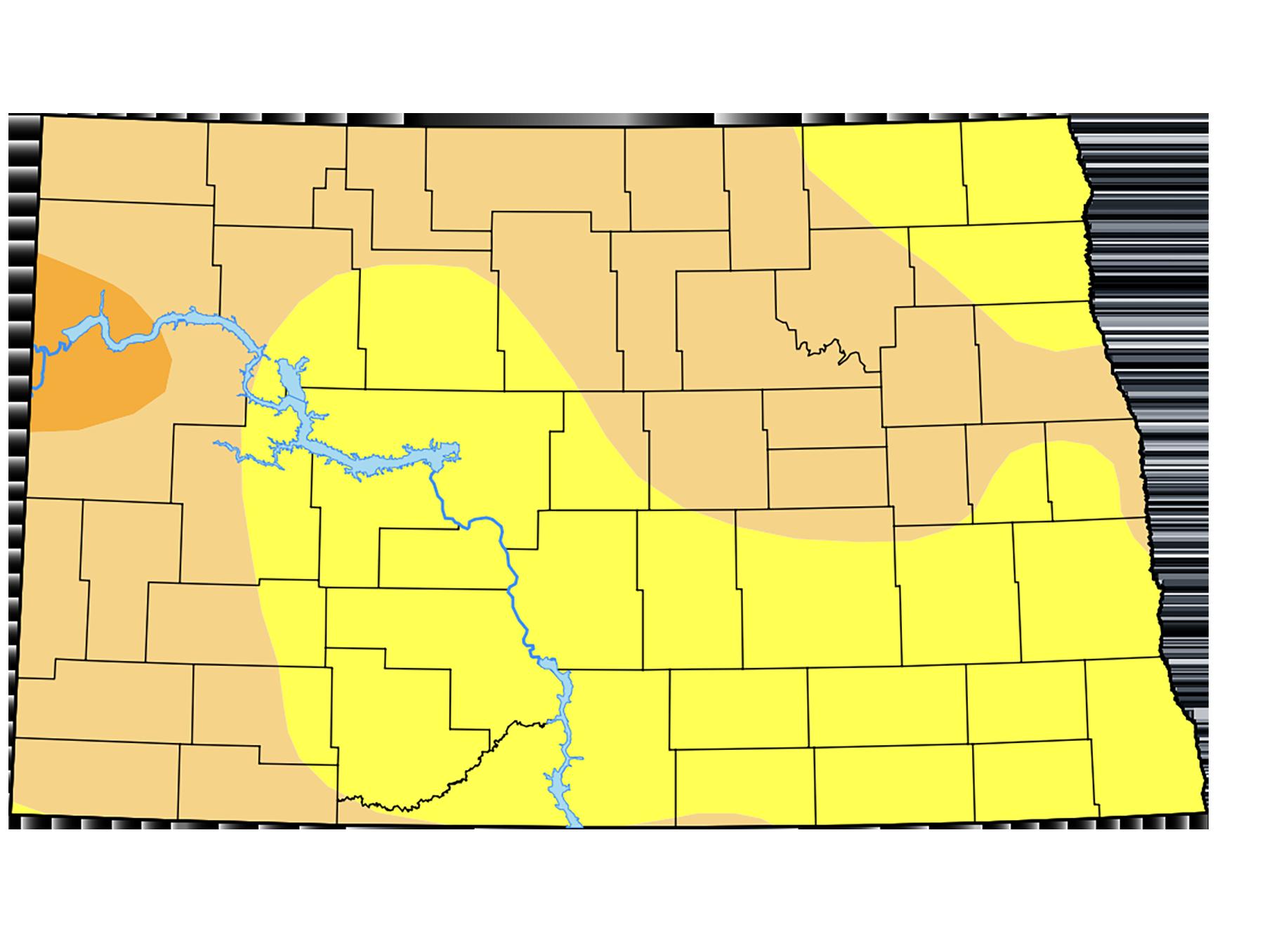
To help plan for the 2023 grazing season, NDSU Extension developed the following scenarios based on precipitation and management:
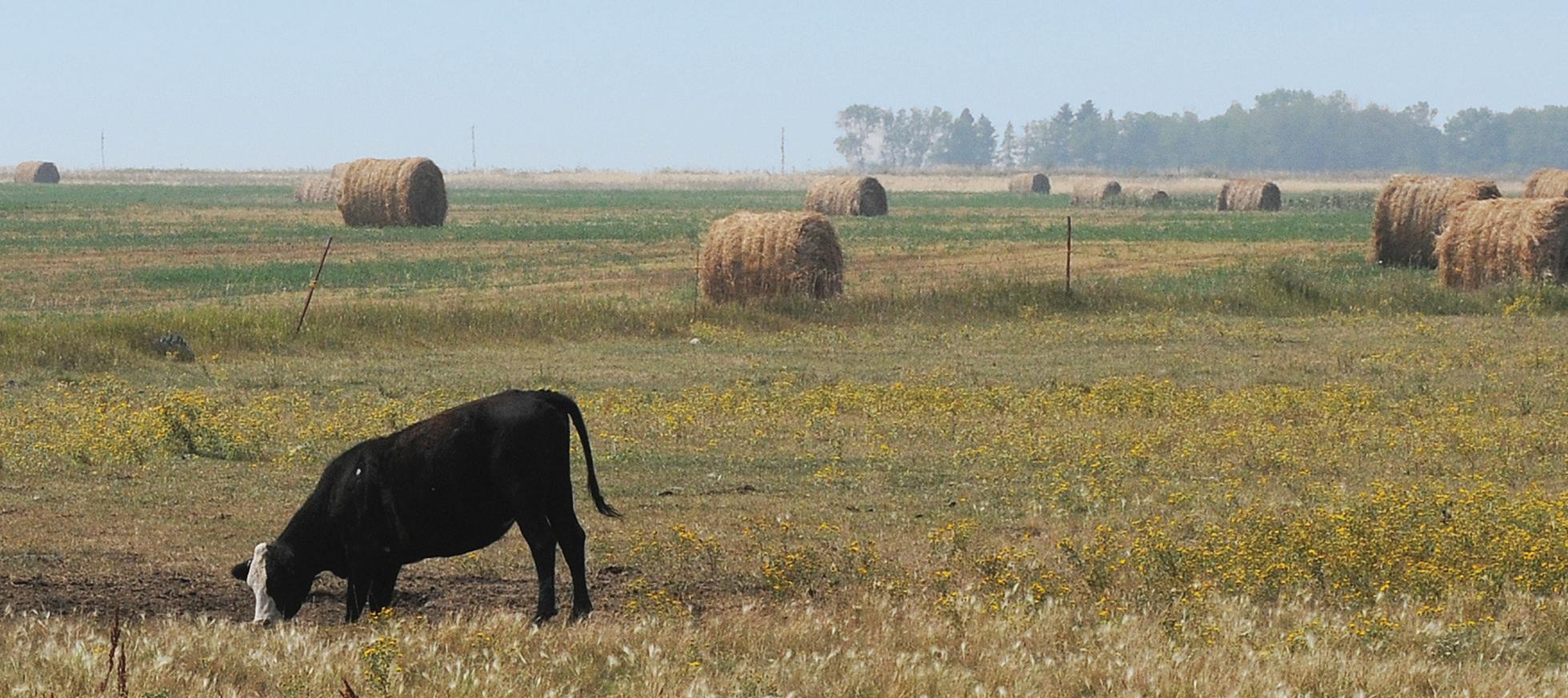
If spring precipitation is normal, expect a delay in plant development and lower production due to a loss in tiller development following the dry fall. Further reductions will occur if pastures were grazed heavily in the fall.
If spring precipitation is 130% or more above normal, expect normal to above normal forage production.
If spring precipitation is below normal, expect reduced forage production and a decline in forage quality earlier in the season.
“Regardless of spring precipitation, ranchers should prepare for a one- to two-week delay in growth this spring due to poor tiller development this fall,” said Meehan. “This delay will be greater on pastures that were grazed heavily this fall due to increased tiller mortality. Expect pastures that received heavy use in the fall to have reduced forage production this year.”
To prevent further reductions in plant health and production, Meehan and Sedivec
recommend delaying pasture turnout until the dominant forage species in a pasture reach grazing readiness. Grazing readiness for most domesticated pasture is at the 3-leaf stage, whereas grazing readiness for most native range grasses is the 3 1/2-leaf stage.
“When production is low due to delayed tiller development, it becomes easy to run out of forage more quickly if you go to full stock too early, leading to overuse,” said Sedivec. “This overuse during early green-up leads to reduced plant vigor and reduced leaf area, impacting photosynthesis and reducing food (carbohydrate) stored in roots. In the end, you may sacrifice 45% to 60% of forage production for the year by grazing too early.”
Timely precipitation is critical to forage growth and production, equally critical is the use of management practices that maintain healthy, vigorous plant communities that can withstand disturbances. Regardless of what spring brings we encourage you to have a drought plan in place with well defined trigger dates to reduce risk on your ranch.
Article courtesy NDSU Ag Communications
Graphic courtesy of USDA
the Fourth children’s book from North Dakota Farmers Union
$16.95 plus tax
Dusty learns about generations of family and equipment on their farm, and the latest in soil technology. Find out how Dusty makes Gramps a new thingamajig for his tractor to save the day!




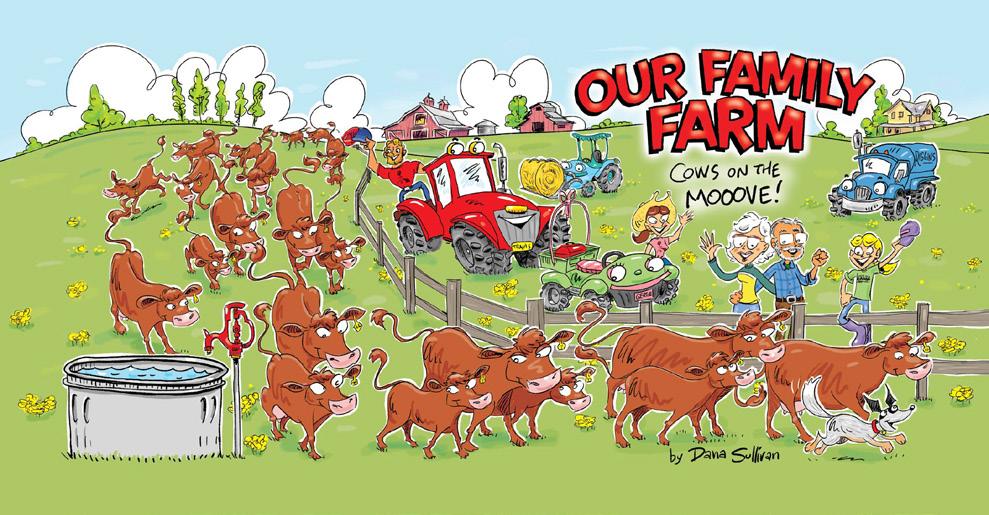

Each year, Founding Farmers King of Prussia takes part in King of Prussia District’s Restaurant Week. Not only an affordable and delicious opportunity for guests, but this partnership is a well-known community event that benefits Children’s Hospital of Philadelphia’s (CHOP) KOP Hospital and Specialty Care Center, as well as their patients and families.
A portion of Founding Farmers KOP Restaurant Week sales are donated to CHOP. CHOP also partners in an Ambassador Program with KOP District, which provides a complimentary dinner to a CHOP family, giving a much-needed break from doctor’s visits and procedures.
This year, Founding Farmers KOP had the opportunity to host Jesse & Jonah, best friends and brothers, and their family. The restaurant team worked to make their meal extra special and memorable from start to finish. Both boys are big dinosaur enthusiasts, and the KOP team succeeded in bringing their love of dinos to life during their dining experience. They crafted and decorated the perfect dino-themed table setting, and their Service Manager donned a T-rex costume as a surprise for the boys.
The entire KOP team said they were honored to participate in the program, and it was an absolute pleasure to host and give back to Jesse, Jonah and their family.


Beginning in June of 2023, livestock owners will need a prescription from a licensed veterinarian to purchase all medically important antimicrobial drugs, said Dr. Gerald Stokka, North Dakota State University Extension veterinarian and livestock stewardship specialist. Currently, there are several antibiotics sold over-the-counter (OTC) that do not require a veterinary prescription to purchase.
The changes being implemented in 2023 are the latest in a plan put into place in 2012 by the Food and Drug Administration. At that time, the FDA recommended limiting the use of antimicrobial drugs that are considered necessary for assuring animal health to include veterinary oversight or consultation.
Following this guidance, in 2013, recommendations regarding the transition of medically important antimicrobials administered through feed and water required either a veterinary feed directive (VFD) or a prescription status. This guidance resulted in the use of these products now being authorized by a veterinarian within a veterinary client patient relationship (VCPR). The new labels implementing this policy went into effect in January 2017.
The most recent guidance document pertains to transitioning the sale and use of the remaining medically important, OTC antimicrobials to prescription status. Once the recommendations have been fully implemented, all dosage forms of medically important antimicrobials approved for use in animals can only be administered under a prescription from a licensed veterinarian with a VCPR and only when necessary for the treatment, control or prevention of specific diseases.
The most common products in this category include penicillin (both procaine and procaine/ benzathine formulations), all oxytetracycline products including 100, 200 and 300 mg/ml injectable formulations, and the sulfa class of antimicrobials. A list of all products changing to prescription status can be found at fda.gov.
“Antimicrobials for use in livestock can be
purchased from a veterinary clinic or from a registered animal health retail facility,” said Dr. Stokka. “The veterinarian with which your operation has a VCPR will need to provide a prescription to the retail operation to allow for the purchase.
“This VCPR implies a relationship with the operation, knowledge of the operation and knowledge of the animals’ need for antimicrobial treatment,” added Dr. Stokka.
The retailer, if not already registered with the state of North Dakota as an animal health retail facility, will need to apply through the North Dakota Board of Pharmacy. In addition, one person associated with the facility must be registered as a veterinary dispensing technician to assure documentation and proper product labeling.
After June 11, all new product entering distribution channels that was formerly purchased OTC, must be labeled as prescription products. However, the FDA intends to allow existing inventory of OTClabeled product that may already be in distribution channels to deplete.

New inventory with changes that reflect the change from OTC status will be labeled with new labels indicating prescription status.
Animal owners still have access to medically important antimicrobials to address animal health issues in consultation with their veterinarian to obtain a prescription. Drug sponsors, which means drug manufacturers, have two years to voluntarily comply with the guidance. This voluntary compliance began in June of 2021.
“The livestock industry continues to respond to changes regarding the use of antimicrobials,” said Dr. Stokka. “We have adopted the concept of judicious use as part of our commitment to antimicrobial stewardship, and the careful and responsible management of antimicrobial resources. The principles are simple: use only when necessary, and use under the direction of a veterinarian with a valid VCPR.”
Article courtesy NDSU Ag Communications
After June 11, all new product entering distribution channels that was formerly purchased OTC, must be labeled as prescription products. However, the FDA intends to allow existing inventory of OTC-labeled product that may already be in distribution channels to deplete.
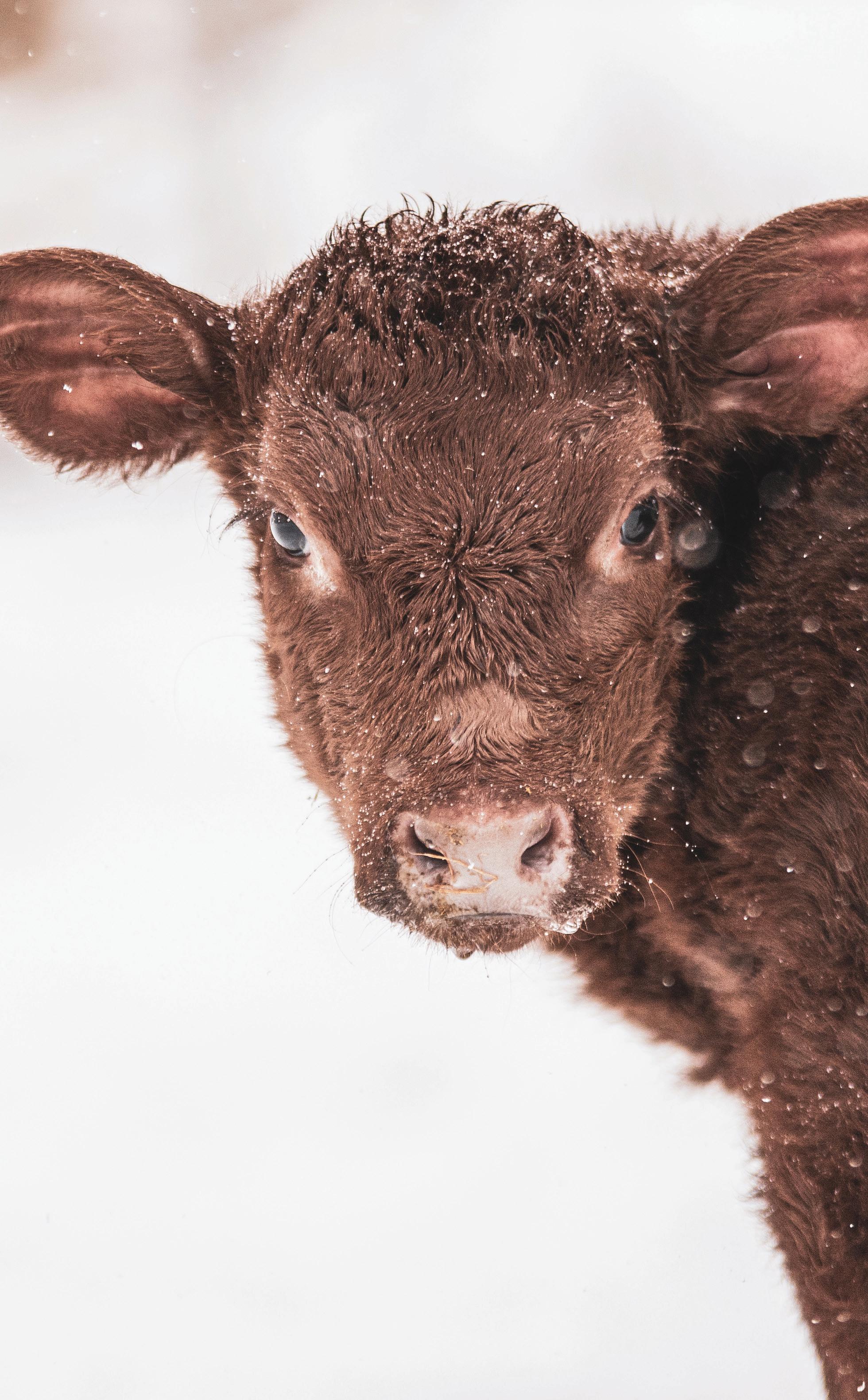
Ads must be submitted through the online form at www.ndfu.org. Click “Classifieds” at the very bottom of ndfu.org and fill out the online form. Ads must be re-submitted each month. No exceptions!
Deadline is the 15th of every month. Limit 75 words.
MEMBERSHIP DUES MUST BE CURRENT!
CONCORD AIR SEEDER. 20 ft with dutch openers to place seed and dry fertilizer in 6” rows, also deep band nh3 between seed rows, 80/40 cart with rebuilt seed and fertilizer meters also new clutch. also has a hydraulic winch to hook up nh3 tanks. $6000 obo; 28 ft IH 7200 hoe drill for parts or take the whole drill. 16 ft Melroe drills with seed weeder and fertilizer $1250 obo; 851 and 852 NH balers with auto wrap. 701-269-6216, Jerry Miller, Streeter.
1956 CHEVROLET 3100, small window, 327ci, 3 on the tree with O/D, in CA $13,000; 1965 C10 long bed, 283 ci, 4 speed, in ND $8000. (707) 425-7315, Vernon Buchmann, Fairfield, Calif.
JD 1620 COULTER (chisel plow converted to vertical tillage tool), 40’, new hoses, new lift cylinder, good tires and lots of new bearings, blades measure 17”. $15,000 OBO. 701-3215711, John Kempf, Ashley.
TWO STEEL BINS on cones w/aeration fans; Bourgault knock on cultivator sweeps; used Case IH 8230 feeder chain; combine pickup guards/lifters; 3 triangular grain auger hoppers w/straps/chains to fasten onto grain auger; old front tine rototiller; Simer water pump; farm scale/steel wheels; used 16” JD cultivator shovels/spikes; 4x8’ wooden stone boat; John Blue anhydrous nitrolator w/hyd shut off hoses. 701-629-9003, Doug Halden, Stanley.
ROCK PICKER, Rock-o-Matic, reel type, good condition. 701-693-2306, Steve Vetter, Harvey.
15-30 MCCORMICK TRACTOR, 1 new tire LT245-75R-Load Range E; 2 cream separators; 4-wheel steel running gear; Covered wagon running gear; 12’ Kirschman drill; Horse potato cultivator; 4 Btm. Pony & Packer, saddle and 2 bridles, Email: larryn@westriv.com. 701-5488020, Larry Nagel, Shields.
1984 MASSEY 860 COMBINE with pickup head & 24’ straight head, new tires, good sieves, chains and belts; 60 ft Melroe Harrow good shape; Summers Ultimate NT sprayer, 90’ boom, 1500 gal tank, Flush tank, chemical filler, hydraulic pump. 701-331-8983/701-593-6368/ Jim Kovarik, Adams.
FUEL TANK 500 gallon on skids $1300. Add on 3pt hitch for IHC tractors $1100. New Meyer snowblade for small pickups or side-by-side ATV with auto angle and electric over hydraulic lift $2600. 701-974-3644, Loren Myran, Taylor.
CULTIVATOR, used Koehn 8 row Danish tine row crop cultivator, set for 30” rows, adjustable, depth wheels, stand, sway discs on ends. $250 OBO. 701-952-8973, Glen Nagel, Jamestown.
JOHN DEERE CORN HEADER, either 444 or 443 or 644 or 643, must be complete and in usable condition. 701-269-6216, Jerry Miller, Streeter.
TRACTORS, IH 706s on up; JDs 4520, 4620, 5010, 5020, 6030, others; MM 950s on up; Oliver 1963 on up; AC 200, 220, 210, D-21, others. Most tractors 1963 on up running or not. 701-628-2130, Jerry Lumley, Stanley.
COMBINES, old IHC combines #62, #123sp; Chevrolet stubnose trucks 1930 -1960; IHC steel wheel tractors; IHC pickup 1945-1955; Newer 4-cycle boat motor; Aermotor windmill fan and or head. Rear tractor tires, 12x38. 701974-3644, Loren Myran, Taylor.
JD SICKLE MOWER #39 with 3 pt hitch; Gehl 206 6 wheel hay rake; Gehl 209 9 wheel hay rake; White 598 6 or 7 bottom plow and selecto-speed transmission Ford tractors. 701-2264055, Lloyd Giese, Steele.
2188 CIH COMBINE, $22,000; 1586 tractor $21,000. Ford F250 Service Body $2,000. 2014 Chevy Traverse $11,000. 701-516-2920, Aaron Subart, Robinson.
JOHN DEERE 1770NT planter, 16x30 CCS
Variable Rate max emerge plus, section control electric shut off hyd drive. liquid in-furrow, ground drive liquid pump flow monitors, rear caddy hitch, pneumatic down pressure, Screw Yetter trash whippers, precision eset disks, copperhead closing wheels. 1100 acers on new Parallel Arms and disks, John Deere 8630, 20.8 38 tires 50 series motor, John Deere 8640 20.8 38 Michelin tires 50 series motor. 701-3201580, David Mutschler, Wimbledon.
PRESS DRILL, 2 ft. IH press drill reconditioned $2800.00 also have used parts for IH drills and many other used press drills different sizes; 28 ft. Krouse tillage disk $5500.00, New Holland 354 grinder mixer new hammers ready to go $1900; Looking for used IH drills, tillage disks, sickle mowers, 6 or 8 wheel rakes, can deliver. 701-400-5742, Gerald Miller, Mandan.
ANTIQUE FREEZER, International. 701-7787771, Elroy Schlenker, Adrian.
ANVILS 100 or 120 pound, nice post vise, outside metal telephone booth from the 50’s, 7 UP slider pop machine and Pennzoil cast iron sign base. 701-220-5746, Val Ganje, Bismarck.
TORCH, Purox oxy-acetylene cutting torch w regulators and gauges gas mixers two brazing tips, no hose $100; Two heavy duty Ridgid pipe cutters 1/8-2” pipe $75; 701-740-3375, Randy Geir, Grand Forks.
ANTIQUE FIREPLACE SCREEN, vintage 1920s; Antique kerosene lamps; Steel barn lantern, several glass ones; Male bowling ball, female bowling ball, both priced to sell; Kirby vacuum shampooer, series G5 never used. 701-2631206, Lathan Romsos, Bottineau.
MEN’S BOWLING BALL, type: Black Beauty; Women’s Bowling ball, Brunswick, blue; Antique Parlor lamp mint, fine condition.; Swivel stool; Single mattress; Men’s size 42 long outside shell corduroy coat; Antique folding fireplace screen all brass; 3 piece; coffee table, set with end tables; Men’s winter coat, 100 percent New Zealand lambskin shell; Both coats excellent condition. 701-263-1206, Lathan Romsos, Bottineau.
CHAINSAW PARTS, or complete of old Homelite chainsaw. I visit the Beulah area yearly. (707) 425-7315, Vernon Buchmann, Fairfield, Calif.
PLAYGROUND EQUIPMENT, commercial. 701351-6040, Rick Schwab, Devils Lake.
OLD STUFF, looking for ND Highway Patrol out of service metal door signs, Indian Head road signs, or ND shield shaped highway signs. Looking for signs advertising gas/oil, soda pop, or farm related signs. ND license plates, advertising items like crocks, jugs, thermometers, calendars, pens, or Christmas store gifts. ND small town metal trade tokens, ND picked arrowheads, or anything else interesting like gas pumps or traps. 701-2205746, Val Ganje, Bismarck.
ELECTRIC GOLF CART, in good condition; 30-06 rifle, wood stock. 701-628-2130, Jerry Lumley, Stanley.
PRAIRIE DOG HUNTERS to hunt on my land. Make reservations now. Email: larryn@westriv. com. 701-548-8020, Larry Nagel, Shields.
70 BALES, upland grass hay, 5x6 ft net-wrapped with 569 JD baler. 701-720-1483, Randy Hochstetler, Rolette.
FARM LAND, looking for a small parcel of farmland to rent or purchase in northern Steiber Township or western Schrunk township in Burleigh County. Top rent paid. Will be farmed organically with cover crops and soil building. Will help with capital gains and closing costs. Would be interested in renting something as small as 20 acres. 701-425-9021, Kevin Horneman, Bismarck.



The Grand Forks County Farmers Union Epic program held a snow day event, led by EPIC coach Jill Johnson. The kids learned about snowshoes with lots of STEAM learning and projects, as well as sledding. Erica and Benjamin from Turtle River State Park were gracious hosts.


